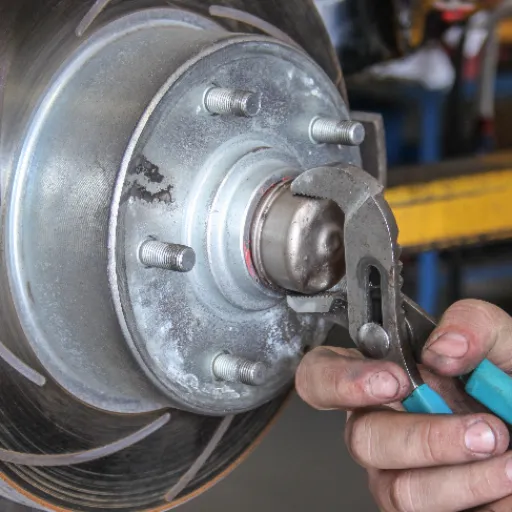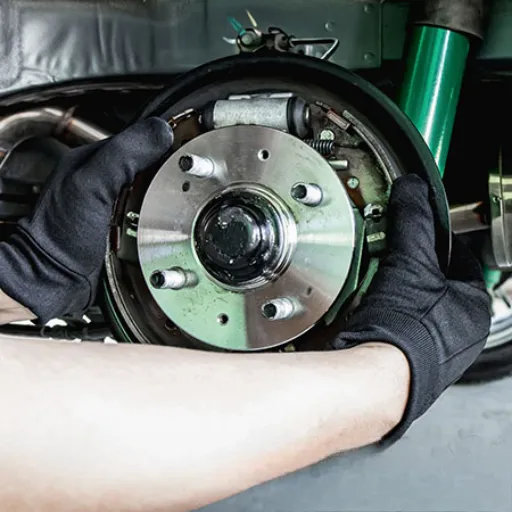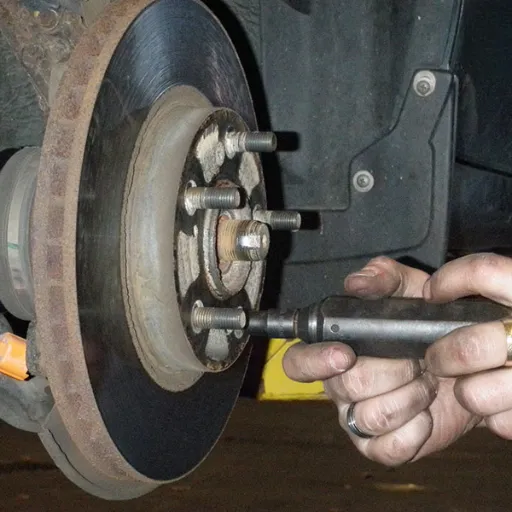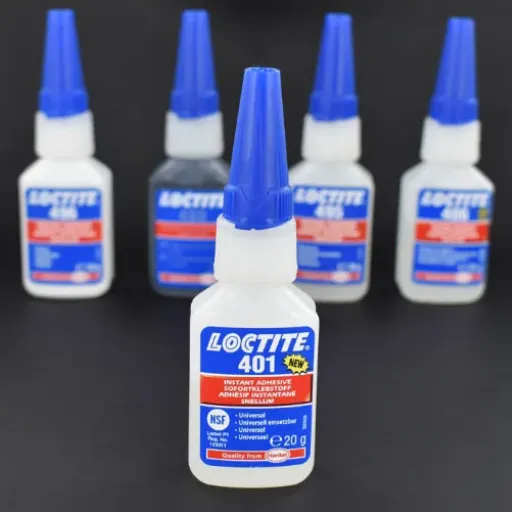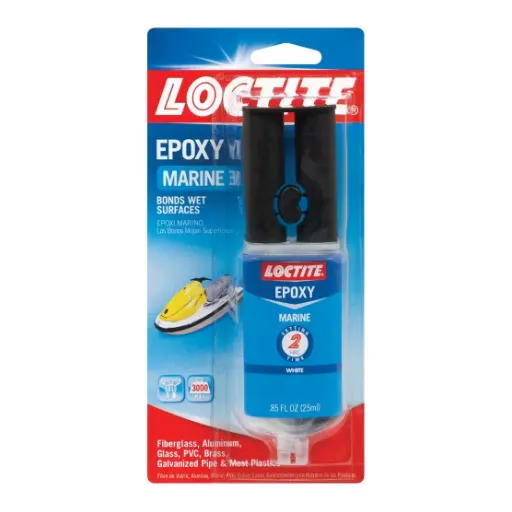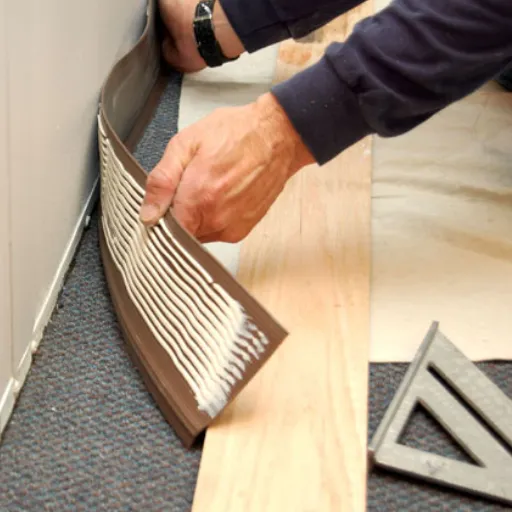The wheel bearing is one of the most unnoticed but essential parts in the car when it comes to vehicle maintenance. The tiny part ensures a smooth, safe ride in the car. Yet, like every other mechanical part, wheel bearings eventually wear out and need to be replaced, posing safety risks. If you have been told that your wheel bearings must be replaced, or you are just wondering about the costs, you are in the right place. This article will cover the costs of changing wheel bearings, including factors that influence overall expenses and tips for making budget-friendly decisions. Whether you are a DIY person or a professional service seeker, this guide offers valuable insights to help you make the right decisions.
Introduction to Wheel Bearing Replacement
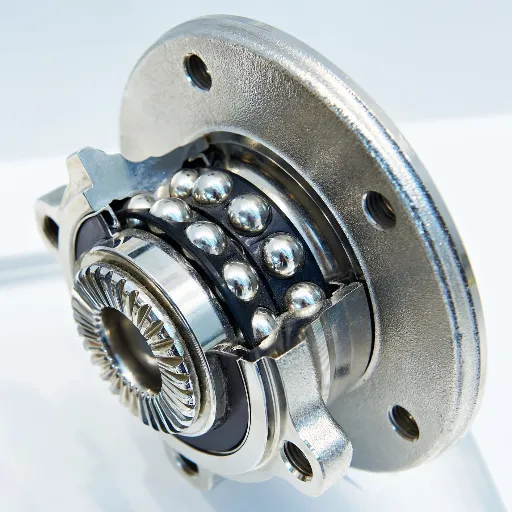
Wheel bearings are one of the essential parts of your car’s wheel assembly and they allow the wheels to rotate freely with very little friction. But they are subjected to large forces, and over time, their performance characteristics can lead to noise, hub vibrations, or reduced handling performance. The replacement of a damaged bearing is still necessary for your vehicle’s safety and it also prevents the vehicle’s further parts from getting damaged. The repair cost varies according to the car’s make and model and also whether a person is getting help from a professional or is selecting the DIY method. Replacement at the right time ensures no extra expenses and a reliable car.
What is a Wheel Bearing?
The wheel bearing constitutes an essential part of the vehicle’s wheel assembly, allowing the wheel to rotate smoothly with very little friction. It is like a combination of steel balls or rollers, fastened around a metal ring called the race. The bearings can be found inside the wheel hub or, sometimes, in the brake drum or rotor, where they support the entire weight of the vehicle and, at the same time, allow for very accurate wheel alignment and rotation. Modern-day wheel bearings are usually sealed units pre-lubricated with high-temperature grease to prolong their life and eliminate the need for frequent maintenance. Good wheel bearings are essential for smooth vehicle handling, reduced noise, and improved road safety. Nevertheless, the wheel bearings will eventually fail because of continual use, contact with dirt and other harmful substances or improper lubrication, thus making regular inspection and prompt replacement essential.
Importance of Wheel Bearings in Vehicle Performance
Wheel bearings are the unsung heroes of vehicle performance. They are basically the friction reducers. That is, they allow the wheels to rotate smoothly, thereby indirectly contributing to the vehicle’s efficient movement. The car will, of course, be stable, handle on point, and be pretty quiet during operation if the wheel bearings are working right. If not, you will experience rough tire wear, vibrations, grinding noises coming from the wheel area, or difficulty steering at least one of the wheels. This will be detrimental to both safety and driving comfort.
Moreover, neglected wheel bearings might lead to expensive damages like the hub assembly or axle becoming faulty due to the bearing’s incapacity to take the load. Therefore, regular checkups and maintenance should be performed to detect wear or damage in components early. When wheel bearings are replaced, it is paramount to use top-quality parts to maintain the vehicle’s performance and longevity. So, while the driver is not only understanding but also recognizing the importance of wheel bearings and potential issues, they can count on a safer, smoother, and more reliable driving experience.
💡 Quick Cost Overview
The price to replace your car’s wheel bearings will vary slightly by vehicle, depending on the brand, model, and labor rates in your area. In general, replacing the bearings costs $150 to $500 per wheel. The mentioned price includes both wheel bearing costs, which are usually between $50 and $200, and labor charges, which may range from $100 to $300. The service cost for high-class or specialized vehicles would be higher because the parts are more expensive and the repairs are more complex.
Factors Influencing the Cost to Replace Wheel Bearings
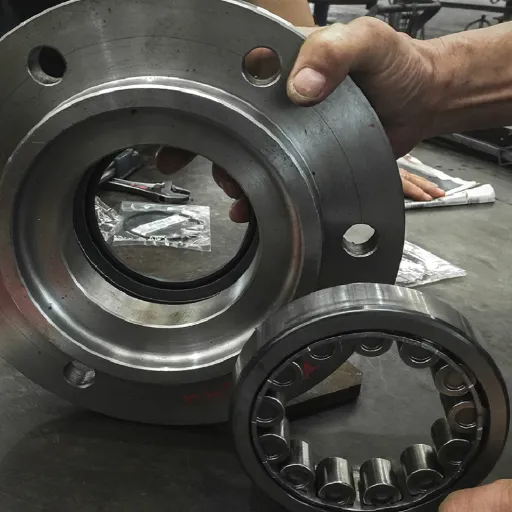
🚗 Type of Vehicle
The vehicle’s make and model can significantly impact cost, as luxury or specialized vehicles may require more expensive parts and labor.
⚙️ Type of Wheel Bearing
The different types of wheel bearings, such as hub assemblies or press-in bearings, have additional costs and complexity, which affect the overall price.
👨🔧 Labor Rates
Labor rates planned per region and the technician’s expertise usually play the most significant role in the total cost of the replacement.
🔧 Condition of Related Components
If other parts, such as the axle or hub, are already damaged or worn out, they will need to be repaired or replaced, thereby increasing the overall cost.
📍 Geographic Location
Cost factors vary from one region to another, as local economic factors often affect parts availability and labor rates.
Type of Vehicle and Wheel Bearing
The vehicle’s category and the type of wheel bearing installed are the two significant factors that affect not only the cost of replacement but also the overall performance. To illustrate, the large-sized vehicles, including SUVs and trucks, will mostly necessitate the use of heavy-duty wheel bearings which are costlier than those fitted in smaller sedans. Moreover, all-wheel-drive (AWD) or four-wheel-drive (4WD) equipped vehicles are more likely to have complex bearing assemblies thus incurring higher replacement costs. Commonly asked questions include whether aftermarket bearings are worth purchasing and whether premium ones really provide a notable increase in lifespan. However, the answer to the question is highly context-specific, as premium bearings are usually associated with high durability for the driving surface, typically in high-mileage or demanding applications such as rough terrain.
Geographical Location and Labor Costs
Geographic location is a significant factor in determining the total cost of wheel bearing replacement. Labor costs vary considerably from one area to another, with urban areas generally charging more per hour than rural areas. A city garage, for instance, may set a labor rate of around $100-$150 per hour while a country shop might offer it at about $50-$75 per hour. The limited customer access to skilled auto technicians in certain areas also increases costs due to the complexity of bearing assembly in AWD or 4WD vehicles.
💭 Aftermarket vs. Premium Bearings
When deciding between aftermarket and premium bearings, it usually comes down to your driving conditions and financial capability. Besides being cost-efficient, the aftermarket options might not even come close to the durability of top-quality premium bearings designed for high-mileage or off-road use. Although the vast majority of cars can use aftermarket bearings, ensuring a correct match and following the manufacturer’s guidelines is essential. Premium bearings, especially if you are driving in rough conditions or extreme weather, are a good long-term investment for performance and can even boost resale value.
Quality of Replacement Parts
The quality of replacement parts significantly affects the cost of replacing wheel bearings. Usually, high-quality bearings from reputable manufacturers are more expensive, but they also offer better durability, reliability, and performance. They are most suitable for vehicles that are often subjected to the harshest conditions, such as off-road terrain or extreme weather. The cheaper aftermarket bearings, on the other hand, may be affordable but they have a shorter life span and may not meet the same standards as premium grades. Hence the right quality depends on the vehicle’s usage and the requirements of its long-term performance.
Average Cost to Replace Wheel Bearings
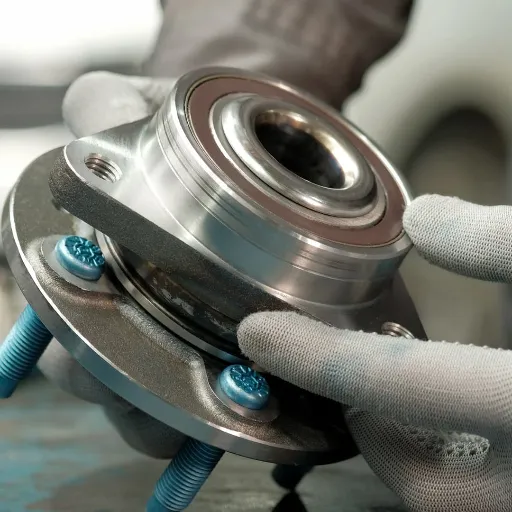
The typical cost to replace wheel bearings is between $150 and $350 per wheel. The estimate presented is a combination of parts and labor, with labor costs varying by vehicle make and model. The line of high-quality bearings or specialized vehicles might raise costs, while choosing the economical line of bearings might lower them. Still, at the same time, the lifetime of the bearings might be shortened. Always talk to a reliable mechanic for the proper replacement and to ensure the part is compatible with your vehicle.
Breakdown of Parts and Labor Costs
When the bearings of the wheel are being replaced, the cost is usually classified into parts and labor which are the two main categories. The expense of the actual wheel bearing is generally between $50 and $200, depending on the type and the manufacturer of the part. Performance-oriented or OEM (Original Equipment Manufacturer) bearings are often priced higher but offer longer life and greater reliability.
The labor cost can be very different and the hourly rates of the mechanics in your area are often a significant factor in that. The average labor cost to replace a liner wheel bearing is $100 to $150. The entire process typically takes about one to two hours, depending on the car and the mechanic’s skill.
Some high-end or rare cars could need more time or specialized tools which in turn may raise both parts and labor costs. It is a good idea to check quotes from several repair shops in your locality to ensure the estimates are correct and the rates are reasonable.
Cost Comparisons for Different Vehicles
The cost of replacing a wheel bearing varies depending on the vehicle type, such as sedans, SUVs, trucks, and luxury models.
| Vehicle Type | Labor Cost | Parts Cost | Total Cost | Time Required |
|---|---|---|---|---|
| Sedan | $100-$150 | $50-$100 | $150-$250 | 1-2 hours |
| SUV | $120-$180 | $75-$150 | $195-$330 | 1.5-2.5 hours |
| Truck | $130-$200 | $100-$200 | $230-$400 | 2-3 hours |
| Luxury | $200-$300 | $150-$300 | $350-$600 | 3-4 hours |
DIY vs Professional Wheel Bearing Replacement
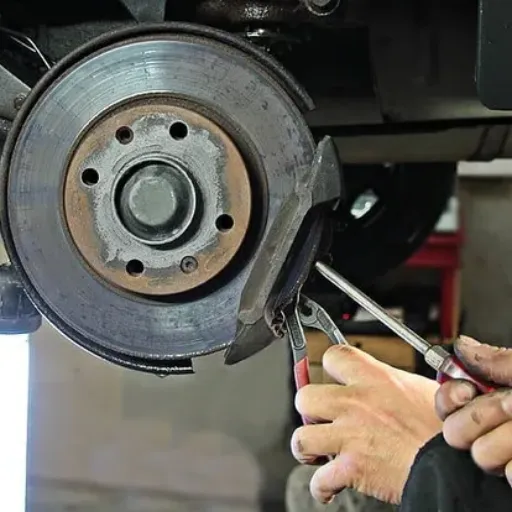
When deciding between DIY and professional wheel bearing replacement, factors include cost, time, tools, skills, safety, and warranty.
| Key Point | DIY | Professional |
|---|---|---|
| Cost | Low | Higher |
| Time | Longer | Shorter |
| Tools | Special Needed | Provided |
| Skills | Advanced | Not Needed |
| Safety | Moderate Risk | High Safety |
| Warranty | None/Uncertain | Guaranteed |
Advantages of Professional Services
- ✓ Expertise and Experience
Professional mechanics have the training and experience to accurately diagnose and fix problems, thereby ensuring the job is done correctly the first time.
- ✓ Proper Tools and Equipment
Professionals have specialized tools and equipment that are not readily accessible to DIYers, ensuring precision and safety.
- ✓ Time Efficiency
Professional services are a valuable time-saver, as mechanics can perform the replacement much faster than most people can do it themselves.
- ✓ Warranty Protection
Many professional services include a warranty covering both parts and labor, providing reassurance and protection against future repairs.
- ✓ Enhanced Safety
Relying on professionals reduces the risk of errors that could compromise the car’s safety, helping the driver feel secure on the road.
Costs Involved in DIY Replacement
The main expenses associated with a DIY replacement are the cost of parts and tools. The cost of the parts can range from $20 to $200 or even more, depending on the part’s specification, vehicle make, and model. In addition to the parts, if any specific tools are needed for the job, they can cost anywhere between $50 and $150 extra. Though DIY will help you save a little on labor costs, you might incur more costs if mistakes occur or if you run out of tools and materials during the process.
Tools and Skills Required for DIY
The successful completion of DIY projects highly relies on having the right tools and skills. For most of the tasks, one will need basic tools such as screwdrivers, wrenches, pliers, and a socket set. In addition to the basic tools, for specific repair tasks such as brake jobs or belt replacements, one may need extra tools, such as a torque wrench, jack stands, or a belt tensioner tool.
When it comes to skills, the most basic mechanical knowledge, the ability to follow instructions or a repair manual, and a good understanding of safety procedures are critical. It is also essential to evaluate your comfort level with the task and, if it exceeds your skill set, seek guidance or professional help. Being well-prepared and having the right tools will not only help you finish the task but also provide a safer DIY experience.
Identifying Early Warning Signs of a Failing Wheel Bearing
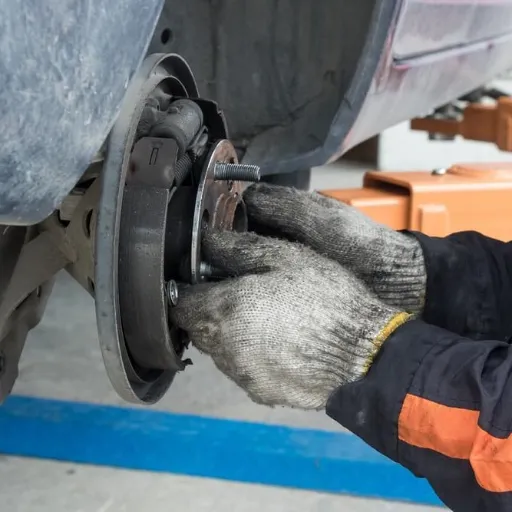
A wheel bearing that is on the verge of failing is usually accompanied by several symptoms that are not to be overlooked. Among the signs are the strange noises from the wheel section, such as grinding, humming, and howling, especially when the vehicle is cornering. The steering wheel can shake or the wheel hub can feel loose, indicating a problem. Furthermore, there might be non-uniform tire wear and the car may behave less stably or less responsively, which are all signs. Quick action on these signs can save you from additional repair costs and let you travel safely on the highway.
⚠️ Warning Signs Checklist
🔊 Unusual Noises
Grinding, humming, or clicking sounds from the wheel area, especially during turns
📳 Vibrations
Steering wheel shaking or unusual vibrations through the vehicle body
🚗 Handling Issues
Reduced stability, difficulty steering, or poor vehicle responsiveness
🛞 Tire Wear
Uneven or abnormal tire wear patterns indicating alignment issues
Unusual Noises: What to Listen For
First, focus on unusual noises —such as grinding, humming, or clicking —coming from the wheel area. The grinding noises may indicate worn wheel bearings, while the humming may indicate uneven wear or misalignment. The clicking noises, especially when turning, may indicate an issue with the CV joint. If these sounds are heard, it is very important to have the vehicle examined promptly to identify and fix the problem.
Vibrations and Their Implications
Unusual vibrations while driving can indicate a range of problems in your vehicle that may not be obvious. If vibrations are felt through the steering wheel, it could mean the tires are unbalanced, the brake rotors are warped, or there is a problem with the suspension. Vibrations that you detect through the whole vehicle could be a sign of problems related to the drivetrain such as a failing driveshaft or worn engine mounts. Therefore, you should take care of these problems quickly not only to enjoy the ride but also to protect your vehicle from being damaged further. When such vibrations are noticed, it is wise to take the car to a mechanic for a thorough inspection.
When to Seek Professional Help
If you feel constant vibrations while driving, hear strange noises, or notice the car handling differently, do not hesitate to get professional help. With the skill and experience of a good mechanic, the problem can be identified accurately and the proper repairs can be suggested to keep your vehicle safe and dependable.
Frequently Asked Questions (FAQs)
❓ What is the average cost to replace a wheel bearing?
As a rule, the average cost of a wheel bearing replacement ranges from $300 to $800, depending on the vehicle’s manufacturer and model. Usually, this cost covers both the parts and labor. Expect to pay around $250 per bearing on average, though this can vary depending on whether you are replacing a front or rear wheel bearing. The cost of high-performance vehicles may be higher due to specially made parts, which are usually expensive. Furthermore, it may be necessary to replace bearings in pairs for some cars, thus increasing the total cost. You can still have the exact price for your specific vehicle type by consulting with an auto parts store nearby.
❓ What factors influence the wheel bearing replacement cost?
The cost of replacing wheel bearings is affected by several factors, including the type of bearing to be replaced, the bearing’s position (front or rear), and the car’s brand and type. Also, the labor charge may differ considerably; some mechanics may have a fixed rate while others may charge per hour. In addition, if your car has sealed bearings, it would be easier and cheaper to replace the bearing as compared to the hub-type assembly which requires more time and special equipment. Another factor that might increase the overall cost is the condition of the bearing to be replaced, as well as whether other parts will be changed during the process. Therefore, it is always advisable to request a detailed estimate before giving the go-ahead for repairs.
❓ How do I know if I need to replace a wheel bearing?
A wheel bearing might need to be replaced if you hear or feel grinding or humming from your vehicle’s wheels while driving. This is what people usually hear when there is a defect or wear in the bearing. In addition, excessive tire wear and steering wheel vibration are indications of a defective bearing. An illuminated ABS warning light can also indicate a wheel bearing problem, especially if it is affecting the anti-lock braking system. Checking the wheel for any noticeable looseness or roughness can also help determine the likelihood of bearing failure. When in doubt, it’s a good idea to have a qualified mechanic take a look.
❓ What is the replacement process for a wheel bearing?
Replacing a wheel bearing generally requires removing the wheel, brake components, and the hub assembly to access the bearing inside the hub. The old bearing is then taken out, which may require special tools. After that, a new bearing is put in and the hub assembly is put back together. The time needed for this work depends mainly on how complex the car’s rear suspension system is, but it takes approximately a few hours of labor. Make sure the new bearings are correctly fitted; otherwise, you could face early failure. Some mechanics believe that using OEM parts for the longest life and best performance is a good practice.
❓ How often should wheel bearings be replaced?
Wheel bearings are said to be durable components—if they last long they might go along with the entire life of the car, but still, there are cases where they need to be eventually replaced after many years of driving or getting damaged somehow. The life cycle of wheel bearings is influenced by factors such as driving conditions, bearing type, and vehicle usage. Frequent use of a vehicle on rough roads can lead to premature bearing wear, reducing their lifespan. It is therefore essential to conduct regular inspections to detect potential issues before they require replacement. It is always advisable to have the bearings checked if you detect any signs of wear so that further damage can be avoided.
💡 Key Takeaways
- ✓ Wheel bearing replacement typically costs between $150 and $500 per wheel
- ✓ Costs vary based on vehicle type, bearing quality, location, and labor rates
- ✓ Professional replacement offers expertise, warranty, and safety benefits
- ✓ DIY replacement can save money but requires advanced skills and specialized tools
- ✓ Watch for warning signs: unusual noises, vibrations, and handling issues
- ✓ Regular inspections help detect problems early and prevent costly repairs
📚 Reference Sources
-
How Much Does a Wheel Bearing Replacement Cost? – AutoZone – Provides an average cost range for professional wheel bearing replacement, including variations for luxury and specialty vehicles.
-
Is $1000 for a wheel bearing replacement a rip off? – Reddit – A community discussion breaking down the costs of wheel bearings and hubs.
-
How Much Does a Wheel Bearing Replacement Cost? – Synchrony – Details the cost of parts and factors affecting the price of wheel bearing replacement.
-
How much does it cost to replace a wheel bearing on your car? – Quora – Discusses DIY options and the cost of parts for wheel bearing replacement.
-
Front Wheel Bearings Replacement Cost – Reddit – Shares a real-life example of labor and parts costs for replacing front wheel bearings.
Final Thoughts
Understanding the costs and factors involved in wheel bearing replacement empowers you to make informed decisions about your vehicle’s maintenance. Whether you choose professional service or tackle the job yourself, prioritizing quality parts and timely replacement ensures your safety on the road and protects your vehicle from further damage. Always consult with trusted mechanics for accurate quotes and expert advice tailored to your specific vehicle needs.







